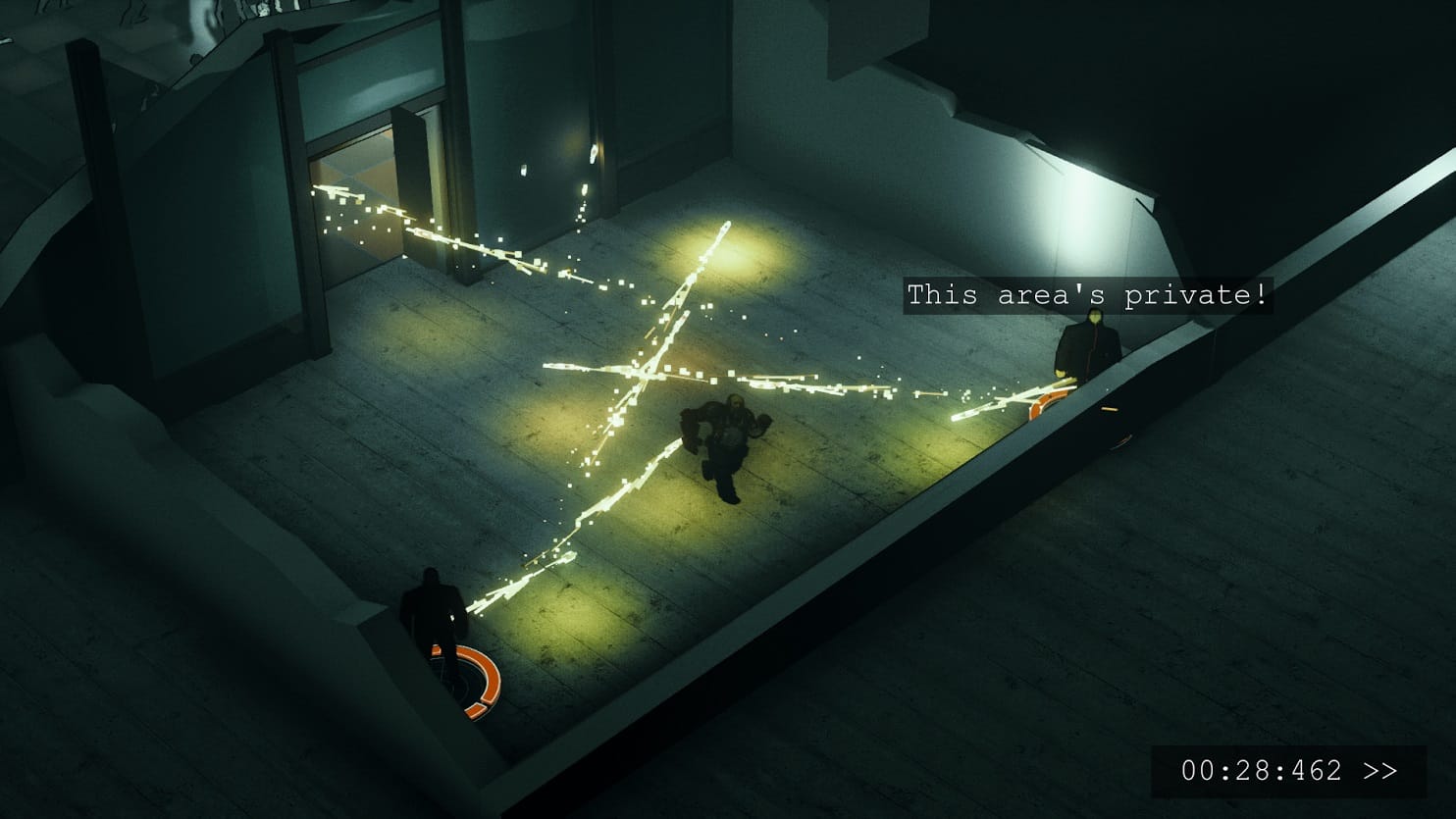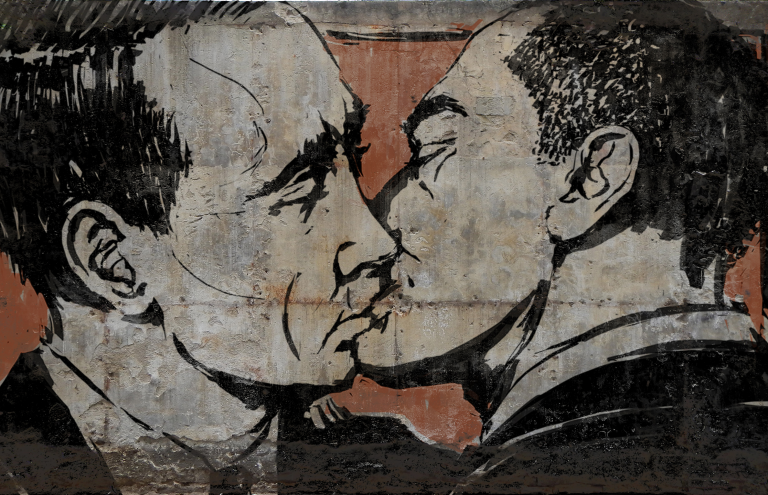All Walls Must Fall to explore the cultural division of Cold War-era Berlin

In All Walls Must Fall, an upcoming isometric action game from newish studio inbetweengames, the Cold War never ended. It’s 2089 and Berlin is still caught in the midst of political powerhouses threatening to push the button. But in inbetweengames’s alternate timeline, the factions of the Cold War have the ability to manipulate time, and are using it to draw out the stalemate.
All Walls Must Fall is a “tech-noir” game, a term coined by James Cameron for his 1984 film The Terminator, “merging classic noir themes with sci-fi, often featuring time travel elements,” inbetweengames co-founder David Hassal told me. He, along with other co-founder Isaac Ashdown, described their upcoming game as “XCOM meets Braid (2008), in cold war sci-fi Berlin.”

That location, Berlin, and its citizens, are something very important to inbetweengames. Giving “an inclusive representation of the people of Berlin featuring their diverse cultural, sexual and gender identities” is a big pillar of All Walls Must Fall. Ashdown explained to me that the Berlin Wall created a cultural division of the city. “Immigrants from different parts of the world came to the two separate sides and different sub-cultures sprung up that influenced each other in different ways.” But, by 2016, he told me, Berlin has mixed up a lot “and has new waves of immigrants like us. But you still notice a sudden change in the languages spoken, for example, when you go from one neighborhood to another. In All Walls Must Fall, we want to reflect this reality of the city, rather than only use it as an architectural or musical backdrop.”
we want to reflect this reality of the city
What you’ll do this near-future is control secret agents who can navigate time and use “social stealth and combat” to hopefully prevent a nuclear holocaust and bring down the Berlin Wall—which by the time All Walls Must Fall begins, has stood for 128 years. According to inbetweengames, it will be a “parable that reflects on free will, moral ambiguity and the meaning of freedom.” But rather than explain how it hopes to achieve this in the game’s narrative, Hassal said: “It is very much an ambition and we have ideas on how to do it, but ultimately it will require players to play the game and tell us whether it works or not.” You’ll be able to give feedback on the game in the near future when it enters early access.

For Hassal and Ashdown, going independent was a risk, but one they felt they had to take. Both veterans of triple-A development, they’ve been involved with games such as Spec Ops: The Line (2012) and the yet-to-be-released Dead Island 2. “When you spent years on a game and pour your heart and soul into it, you develop a real relationship with it,” Hassal said, referring to a project as a “shared child” of a developer and their team. “So if then someone else with the power to do so comes along and aborts it, even if from a purely objective and business oriented point of view it makes sense, for the people developing the game it is soul crushing really.” Having this happen more than once, they decided to take a different gamble, forming their own studio.
“I think being constrained for so long has really given us a hunger for those forbidden fruits. Now we really want to go for it and see where it leads us … we’re fine with the possibility of failure as long as we gave it our best shot.” Hassal continued. All Walls Must Fall is expected to enter Early Access early this year. Time will tell if inbetweengames’ forbidden fruits yield success.




